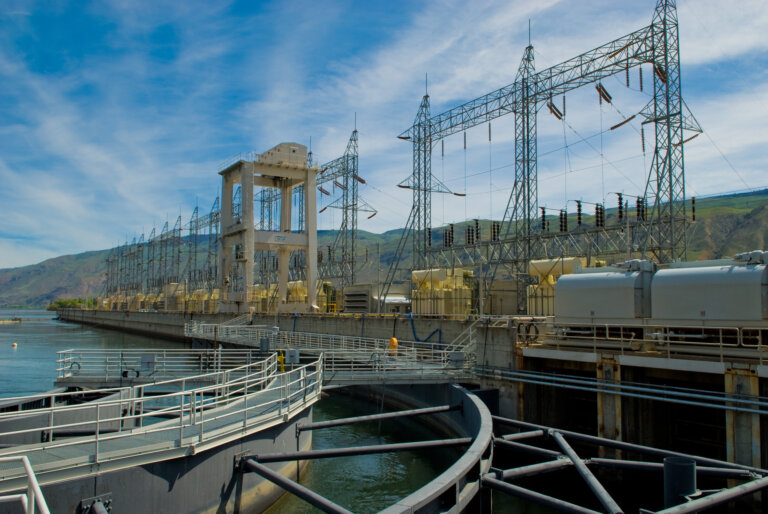
Written by Stuart Simmonds
VP Business Development
June 17, 2024
Water is truly a fascinating and essential component in the world of process measurement. Despite its simplicity, it plays a critical role in various industrial applications. As professionals in the field, it is crucial to understand the unique properties of water that make it both a challenge and a necessity in our processes. Water's presence in all three states—solid, liquid, and gas—combined with its unusual physical and chemical properties, makes it a subject of continuous study and analysis. This blog will delve into the complexities of water, exploring why it is considered the craziest molecule and how its characteristics influence process measurements and industrial applications.
What you’ll learn:
-
The significance of water as a universal solvent
-
The role of hydrogen bonding in water’s unique properties
-
The implications of water being a polar molecule
-
The impact of water expansion upon freezing
-
How water promotes the formation of corrosive acids
-
The challenges posed by water in causing oxidation in metals and arcing in power generation equipment.
The Universal Solvent.
Water is often referred to as the universal solvent because it can dissolve more substances than any other liquid. This remarkable ability is due to its polar nature, where the oxygen atom has a slight negative charge, and the hydrogen atoms have a slight positive charge. This polarity allows water to interact with a wide range of molecules, breaking them down into ions and molecules that can be carried in solution. In industrial processes, this property means that water can carry both essential nutrients and unwanted contaminants, making water quality measurement a critical task.
Hydrogen Bonding: The Secret Behind Water’s Anomalies.
The hydrogen bonds formed between water molecules are the key to many of its unique properties. These bonds are relatively weak on their own but collectively give water a high level of cohesion. This cohesion gives water high surface tension, allowing it to form droplets and travel through plant roots and capillaries. In industrial applications, this high surface tension can impact processes such as coating and cleaning. Additionally, hydrogen bonding contributes to water’s high boiling point and heat capacity, making it an excellent medium for thermal regulation in processes.
Water: The Polar Molecule.
Water’s polarity is responsible for its solvent abilities and plays a crucial role in its interactions with other substances. As a polar molecule, water can engage in dipole-dipole interactions, leading to ionic compounds’ dissolution and colloidal suspensions’ stabilization. In industrial contexts, the polar nature of water can influence the solubility and reactivity of various compounds, affecting everything from chemical synthesis to wastewater treatment.

The Expansion of Water Upon Freezing.
One of water’s most unusual properties is its expansion upon freezing. Unlike most substances, which become denser as they solidify, water expands by about 9% when it turns into ice. This expansion is due to the formation of a crystalline structure that occupies more space than the liquid state. This can lead to significant challenges in industrial settings, such as pipe bursts in cold climates and the need for specialized storage and transport solutions for water-containing products.
Imagine reducing maintenance costs and enhancing efficiency by mastering water quality control. Our clients have successfully implemented these strategies — now it’s your turn!
Reach out to us and start optimizing your processes.
Water and Corrosion: The Formation of Corrosive Acids.
Water’s role as a solvent and its polar nature make it a prime candidate for the formation of corrosive acids. When water interacts with acidic oxides, such as sulphur dioxide (SO₂) or nitrogen oxides (NOₓ), it can form strong acids like sulfuric acid (H₂SO₄) and nitric acid (HNO₃). These acids can lead to severe corrosion in metal structures and machinery, posing a significant challenge in industries ranging from oil and gas to manufacturing. Understanding and controlling the presence of these acids in water is essential to maintaining the integrity and longevity of equipment.
Oxidation and Metal Degradation.
Water is also a significant factor in the oxidation of metals, a process that can lead to rust and degradation of metal components. The presence of dissolved oxygen and other oxidizing agents in water can accelerate this process, leading to costly maintenance and repairs. In power generation and other high-stakes industrial environments, preventing water-induced oxidation is critical to ensuring operational efficiency and safety. Techniques such as deoxygenation and the use of corrosion inhibitors are commonly employed to mitigate these effects.
Water’s Role in Power Generation Equipment.
In power generation, water’s properties can lead to arcing and electrical failures. When water infiltrates electrical systems, it can create paths for current to flow unintendedly, causing short circuits and equipment failures. This risk is exceptionally high in environments where water vapour or condensation can form, necessitating stringent controls and protective measures to safeguard electrical components.

Ensuring Water Quality in Industrial Applications.
Given water’s multifaceted roles and impacts in industrial settings, ensuring water quality is paramount. Advanced water measurement and analysis technologies are employed to monitor parameters such as pH, conductivity, dissolved oxygen, and the presence of contaminants. These measurements help maintain the desired water quality, ensuring that it meets the specific needs of each application, whether it’s for cooling, cleaning, or being a reactant in chemical processes.
Water might be the craziest molecule, but with Novatech’s expertise, managing it doesn’t have to be. Get in touch with us to find out how we can help you achieve optimal results in your applications.
Conclusion.
Understanding the unique properties of water is essential for professionals in the field of process measurement and industrial applications. Water’s ability to act as a universal solvent, its polar nature, and its unusual physical properties make it both a challenge and a necessity in various processes. By leveraging advanced measurement technologies and implementing stringent quality controls, industries can harness the benefits of water while mitigating its potential drawbacks.
Be the first to read our articles

Written by Stuart Simmonds
VP Business Development
Write to me at stuart.simmonds@novatech.ca

